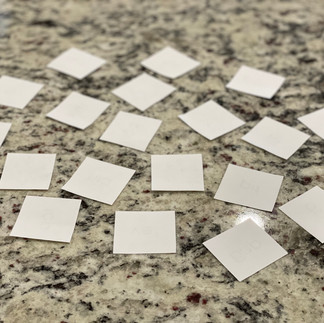
Can online tutoring really be effective? Don’t you need to be in-person to make it work?!
You might be surprised to find out that online tutoring can actually be MORE effective than in person!
You may have had a terrible experience with virtual schooling during the pandemic. That is true for so many people. To be fair, it was completely new and overwhelming for EVERYONE!
Online tutoring is completely different from what you probably experienced during the pandemic shutdown.
For one thing, online tutors are experts at when they do, and have the right equipment for the job. That makes all the difference in the experience!
There are so many other great advantages to online tutoring!
1. Flexible Timing:
Online tutoring lets you choose the best time for your child's lessons, making it easier to fit into your family's schedule. No more worrying about conflicting schedules. You don’t have to worry about not being home to make dinner. All you need to do is make sure your child connects with the tutor online. They do the rest.
2. No Travel Needed:
Your child can learn from home, saving you time and money on travel. Plus, they get to learn in a familiar and comfortable environment. No more sitting someplace for an hour waiting. How many hours have you spent waiting for your child’s activities???
3. Replay Lessons:
If your child didn't catch something during the lesson, no worries! Online sessions can be recorded, so they can watch it again.
4. Connect with Great Tutors Anywhere:
Your child can learn from excellent tutors no matter where they are. You have access to a wide range of experienced tutors from around the world. Not only that, but tutoring doesn’t have to stop when you go on vacation. Snow days don’t happen with online tutoring either. There’s no learning loss.
5. Personalized Learning:
Tutors can make lessons just right for your child, focusing on what they need help with the most. This is where most online tutors shine. For me personally, all my lessons are completely interactive and multisensory. My students are provided with the same materials I use in person, and I guide them through each step one on one. Not only that, but every lesson is written specifically for your child, based on how they did the previous one. My online tutoring is exclusively targeted for your child.
6. Comfortable Learning Environment:
Your child can learn in a place where they feel most comfortable, which can help reduce any stress or anxiety they might feel about reading. When your child is at home in their surroundings, it’s easier for them to focus. It’s much less disruptive to their lives. Don't you love to work from home and feel much more productive there?
7. Real Connections:
When you choose online tutoring, you can actually sit in on every lesson to see exactly what your child is learning. You are better able to reinforce their lessons when you know what they’re learning. Not only that, but there is usually time at the end to chat with the online tutor. That time can be limited in person simply because transitions take so much longer.
There are so many advantages to online tutoring. Even so, the most important thing is finding the method that works best for your child. Online tutoring is a fantastic option that has some great benefits.
If you’d like to find out how my online tutoring sessions work, drop me an email at TheSuccessfulReaderTutoring@gmail.com. I’d love to chat!











